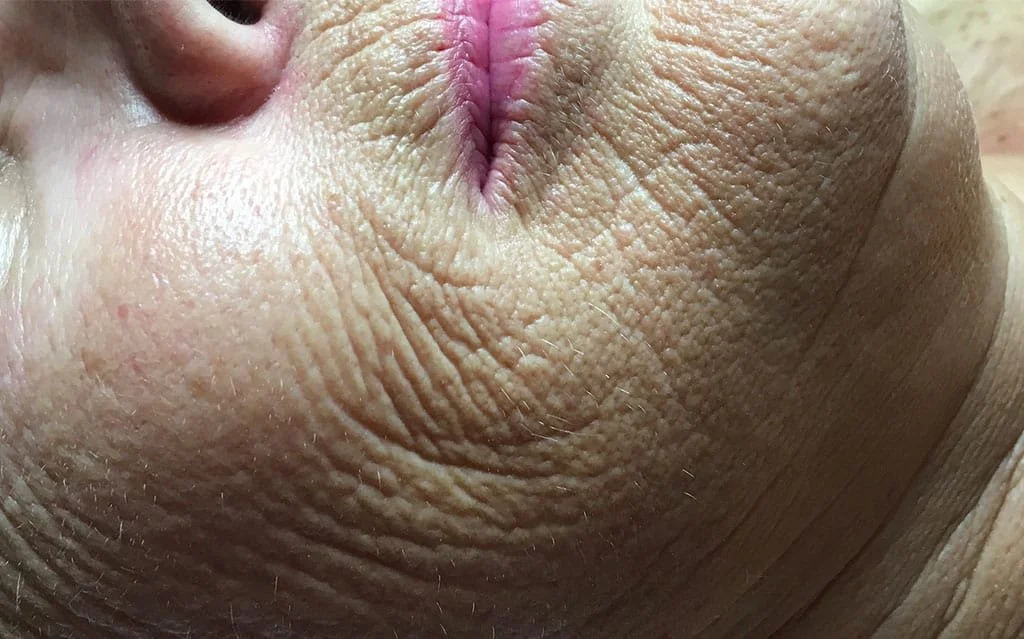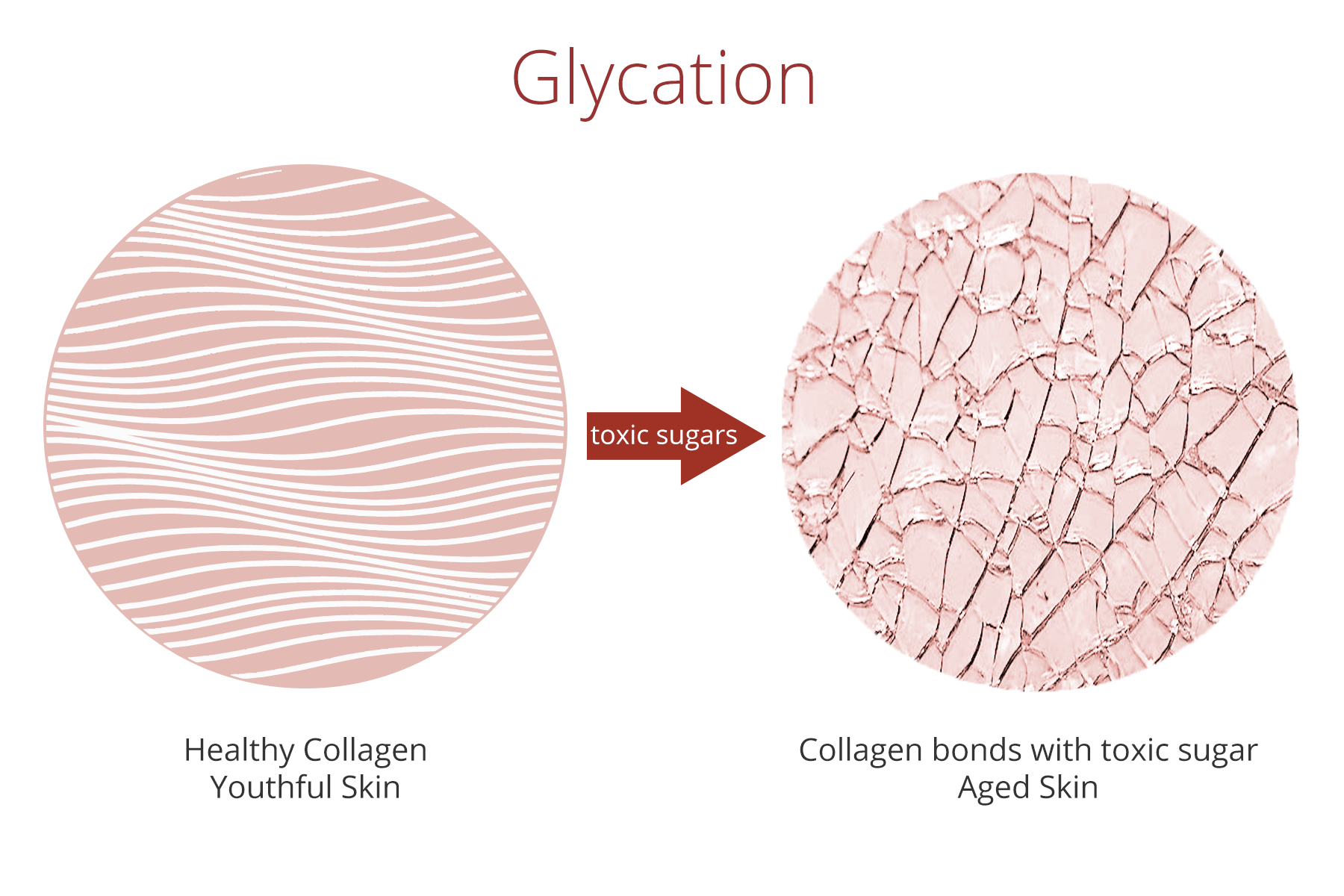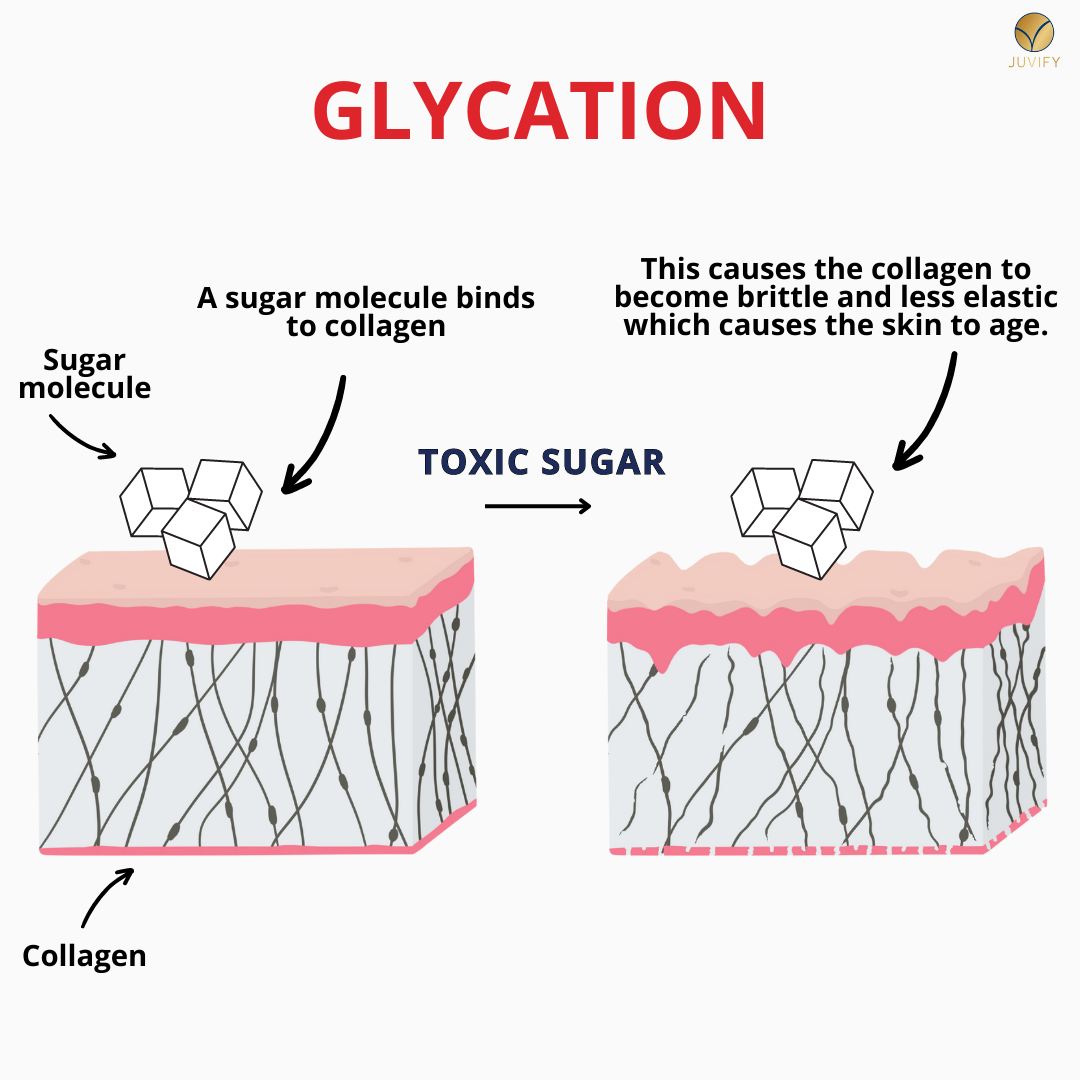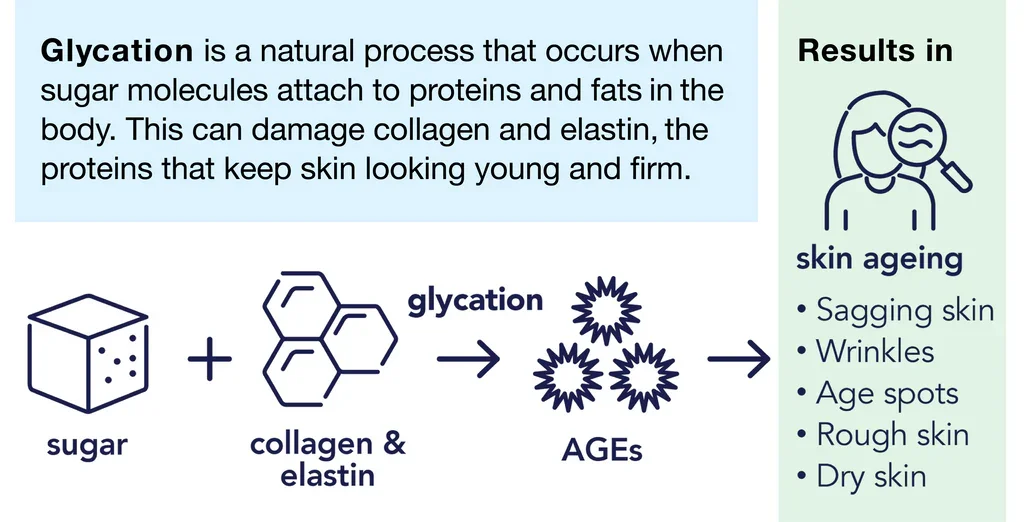Sugar and Skin Ageing: Glycation & How to Prevent It
Glycation: The Link Between Sugar and Skin Ageing
When it comes to premature skin ageing, we often blame sun exposure, dehydration, or a loss of collagen. But there’s another process quietly compromising your skin from the inside out: glycation. This leads to characteristic, ‘criss-cross’ lines & wrinkles.
At Fresh Aesthetics & Skin, we believe great skin starts with understanding the science. Here, we’ll explore what causes glycation, how it damages your skin at a structural level, and what we can do medically to slow its impact.
What Is Glycation?
Glycation is a chemical reaction that occurs when excess sugar molecules in the body bind to proteins or fats, forming harmful compounds known as Advanced Glycation End Products (AGEs).
When these AGEs accumulate, they cause protein fibres such as collagen and elastin, to become stiff, brittle, and dysfunctional. The result? Skin that is less firm, less elastic, and more prone to wrinkles, sagging, and dullness.
What Causes Glycation?
Glycation is triggered by internal sugar overload caused by:
🔹 High blood sugar levels
Regularly consuming refined carbohydrates (white bread, pastries, pasta), sugary snacks, fizzy drinks, and alcohol causes glucose spikes that accelerate glycation.
🔹 Oxidative stress
Environmental toxins (like pollution and UV radiation), smoking, and poor lifestyle choices generate free radicals that intensify glycation reactions.
🔹 Inflammation
Chronic low-grade inflammation, often linked to poor gut health, stress, or hormonal imbalances, fuels the internal environment where glycation thrives.
🔹 Ageing
Natural glycation increases as we age, even with a balanced diet. It’s one of the reasons skin becomes thinner and weaker over time.
Structural Damage: What Glycation Does to Your Skin
To understand why glycation is so damaging, we need to look deeper at the scaffolding of your skin.
1. Collagen Becomes Cross-Linked
Glycation causes collagen fibres to cross-link abnormally. Instead of remaining flexible and repairable, these fibres become rigid and fragmented. Cross-linked collagen:
Can no longer support skin structure effectively
Is less responsive to regenerative treatments
Takes longer to remodel or heal
2. Elastin Loses Its Bounce
Elastin, the protein responsible for skin elasticity and resilience, also becomes stiff and less functional. This leads to:
Sagging, especially around the jawline and eyes
Slower skin recovery after movement or expression
Loss of skin “snap-back” quality
3. Thinner, More Fragile Skin
Over time, the skin’s dermal matrix (the underlying support system) breaks down. This results in:
Fine lines deepening into wrinkles
Skin that bruises, tears, or creases more easily
Overall loss of volume and vitality
How We Combat Glycation at Fresh Aesthetics
With its hidden and progressive effects, glycation requires more than just a surface-level skincare routine. At Fresh Aesthetics, we offer medically backed, results-driven interventions that address the deeper damage glycation causes.
Digital Skin Analysis
Using advanced technology, we analyse the structural integrity of your skin, identifying early signs of collagen breakdown, oxidative stress, and dehydration – often linked to glycation.
Medical-Grade Skincare
All our patients receive personalised skincare plans featuring anti-glycation and collagen-supportive ingredients, such as:
Carnosine – inhibits the formation of AGEs
Vitamin C – promotes collagen synthesis and neutralises oxidative stress
Niacinamide – strengthens the skin barrier and supports cellular repair.
If you want an excellent, all-in-one product to prevent & treat glycation, we would recommend ALUMIENCE A.G.E. by Alumier MD
Regenerative Aesthetic Treatments
Dr. Jayne offers advanced procedures that stimulate new collagen and reverse the visible effects of glycation, including:
Polynucleotides to improve tissue quality and hydration
Profhilo® for bioremodelling and skin firmness
Microneedling and Skin Boosters to promote collagen renewal
Chemical Peels to refine skin texture and tone
Can You Prevent Glycation?
While you can’t eliminate glycation entirely, you can slow it down significantly:
Limit sugar and refined carbs
Eat antioxidant-rich foods (berries, green tea, leafy greens)
Avoid smoking and excessive alcohol
Wear daily SPF to protect against UV-induced glycation
Invest in targeted, medical-grade skincare and treatments
Future-Proof Your Skin with Us
Understanding glycation is key to maintaining healthy, youthful skin – especially as we age. At Fresh Aesthetics, our expert-led team combines skin science with medical aesthetics to create tailored treatment plans that address damage at the source.
Book your consultation today to discover how we can assess, treat, and protect your skin from glycation – and so much more.
Fresh Aesthetics | Portadown’s Medical Skin & Aesthetics Clinic
Where advanced science meets real skin results.





